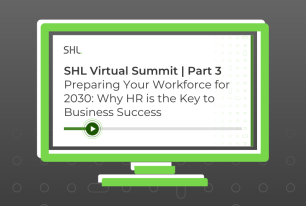Automation and Human Capital in the Logistics and Transportation Industry
How to balance automation and human capital to achieve optimal performance within the Logistics and Transportation Industry.
Share
The Logistics and Transportation industry is one of the biggest employers in South Africa and a major driving force towards a healthy economy. Organizations that operate in this environment must invest heavily in human capital and leading technologies in order to deliver the best results for their clients as well as their employees. Strong leadership skills are a necessary requirement to be able to sort through the complexities of managing these companies.
Current environmental factors shaping this industry include the global pandemic, automation of key processes to improve efficiencies, and employee wellness and retention.
This industry has been in the process of automating some of their processes long before the global pandemic. Automation brought with it some challenges to their existing workforces as it meant there were new skills to be learned by employees who have been with these organizations prior to automation.
Consequently, some employees were faced with redundancy and retrenchments, while others had to adapt to new processes and procedures. However, opportunities also rose from automation as new roles were created to enable the organizations to manage and support their new processes.
In order to create these new roles, the industry had to rethink how they source their talent as they were now moving into the groundbreaking world of machine learning, artificial intelligence, and technology hiring.
These types of skills are quite scarce in developing countries such as South Africa. In addition to these skills being scarce, some of the challenges included talent sourcing (no local benchmarks of best-in-class talent source) and retention, and succession.
Opportunities also rose from automation as new roles were created to enable the organizations to manage and support their new processes.
As automation started taking center stage in the Logistics and Transportation industry, human capital became expensive for these companies due to the high demand for a new skill set and an increase in talent flight. It is easy for employees to jump ship when every organization is recruiting from a niche source. In order to manage these challenges, it is important to take the following into account:
-
Review and Strengthen Recruitment Processes
The transportation industry employs many people; therefore, they must navigate and bargain with unions and other lobby groups that have an interest in their employees. A strong recruitment plan that includes a candidate attraction strategy is usually an ideal step to begin with. This will prove even harder when trying to attract candidates with machine learning or artificial intelligence backgrounds. Ensuring a good candidate experience at the attraction level improves the chances of attracting the right candidates to support their organizational strategy. -
Invest in Employee Development and Succession Planning
Working with scarce resources requires an organization to invest heavily in their development and retention. A rigorous succession plan can alleviate the pressures of talent flight and enable a positive employee experience as well.
A positive outcome of the two is that when done right, it will not only provide the organization with world-class employees but also free up their leadership from worrying about frequent empty vacancies and enable them to focus more on what matters at their level — organizational strategies and a good employer brand reputation.
Learn how SHL can support the Logistics and Transportation industry with their talent management requirements, from acquisition to succession. Our science-based approach to talent management ensures that you will receive the right insights about your people, to help you make the right decisions that will move your company in the right direction.









